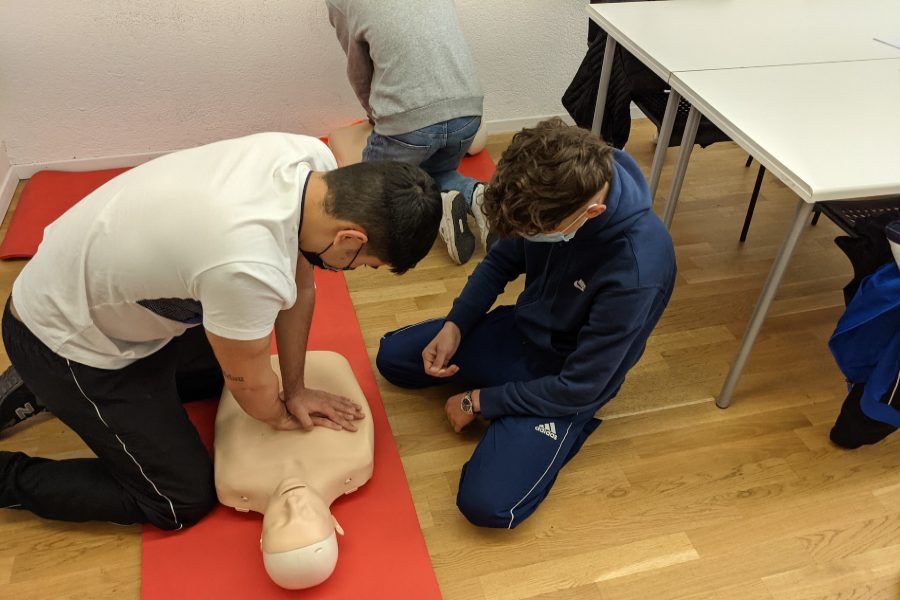What Is A First Responder?
First responders, also known as emergency responders, are the police, firefighters, and EMTs who are the first to respond— hence, the name —-in the event of a crisis, disaster, or emergency. They must act quickly in response to the situation at hand, taking control of the scene and doing what is needed, be it helping victims, tending wounds, catching criminals, or facing unrestrained flames. Their quick and decisive actions can be the difference between life and death.
Assessing Your Interest And Commitment
Being a first responder isn’t like what you see on television. You face difficulties and challenges every day, must pass rigorous exams on your medical ability in a crisis, and will see some dark things. You will lose out on sleep, have minutes and seconds to respond to a crisis and see people at their absolute worst or most vulnerable. You may be someone’s only comfort as they pass or as a loved one passes. You may have to tell parents their child has died. It’s a demanding career, and yet so rewarding.
You can save countless lives. You can help families find strength in each other or spark their sense of hope with a daring rescue. You can give back to your community in many impactful ways. But you must be dedicated, courageous, and compassionate. You must learn to keep a clear mind and a calm tone. And you must be willing to face dangerous situations.
Researching Different Roles
The first step in your journey to becoming a first responder is to determine which field you want to work in. Many different career fields involve emergency personnel, including government agencies like FEMA or local organizations like your city’s fire department. Each career has a specific set of requirements, from certain college degrees and classes to licenses and certifications. Some, like the police force, even have their own training academy to prepare you for the job.
Basic Requirements For First Responders
First and foremost, to be a first responder, you need to be physically fit. Now, you don’t need to match an Olympian. However, each emergency career field requires a certain level of physical aptitude. Firefighters need the strength to run upstairs while fully geared up, remove any obstacles, climb ladders to exterior entrances, and carry unconscious victims. Police need to be able to move quickly over terrain and obstacles, detain resistant individuals, and carry heavy items and equipment through the office. Emergency medical technicians must handle patients, helping them lay safely, restraining them during a violent episode, or carefully transitioning them to a gurney and in and out of an ambulance. They need to be able to move quickly but still have breath to speak to a patient or their friends and family to ask questions and give directions.
In addition to physical fitness, emergency personnel need to be able to remain calm during a crisis, take control of a situation, and withstand gruesome sights. Especially when victims are involved, first responders need to help people in the vicinity remain calm and prevent bystanders from making things more dangerous.
And, let’s be real: you need to be okay with bodily fluids and extreme bowel functions. These jobs are not for the squeamish. You may be vomited on. You may be transporting someone covered in blood or missing a limb. You may find a patient in medical distress covered in their own feces. And you have to help them.
Education And Certifications
What educational path you take will vary by the field you choose, but you will need a high school diploma or equivalent and likely a college degree. Beyond education, however, there are specific licensing and certification exams you will need to pass.
Thanks to advancements in technology and online learning curricula, you can take many of these online. You can even get your BLS certificate online. BLS stands for Basic Life Support, which covers individual and team-focused approaches to immediate first aid, including CPR and the use of defibrillators. It is one of the certificates that is required for all first responders— and many health care personnel.
Additionally, you may need to partake in a training program for your chosen field. The best thing you can do is network with professionals in your chosen career field and get their advice. They can tell you what training you need and point you in the direction of approved training programs if the department doesn’t provide them.
Practical Experience And Volunteer Opportunities
Even if you haven’t passed every requirement to be on the front lines as a first responder, you can generally find a job or a volunteer position in your field. This will grant you a hands-on experience working behind the scenes and a prime view of what things are like for first responders. It’s also a great opportunity to meet EMTs, firefighters, or law enforcement officers you may one day work with. You can also gain valuable experience in high-pressure environments.
Continuing Education And Professional Development
As a first responder, the learning never really stops. On one hand, updates in policies, procedures, and technology will mean you are constantly learning on the job. However, you also need to maintain your certifications.
Those who go above and beyond, or take certain positions requiring more in-depth knowledge, can attend conferences, workshops, and seminars to learn the latest science and new techniques or pursue advanced certifications or specialized training to advance their expertise and broaden career prospects.
Working as a first responder is a noble career choice, with the dragons to match. If you think you have what it takes to be a steady voice in a sea of confusion, it may be the perfect chance for you to save someone’s life.








